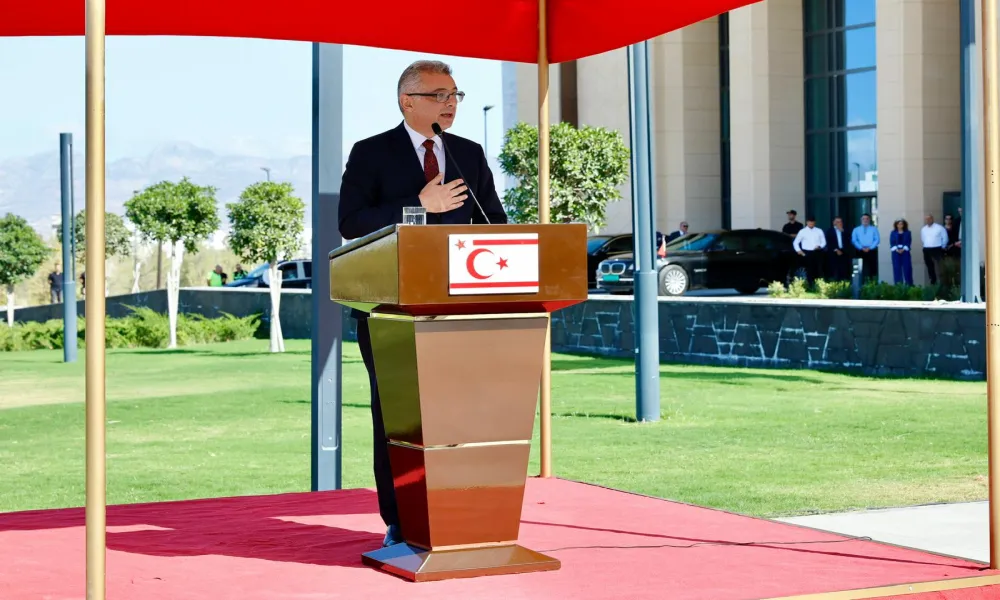In his first address as the new Turkish Cypriot leader, Tufan Erhürman outlined the guiding principles of his approach to the Cyprus problem, signalling a firm stance on sovereignty and equality between the two communities. Speaking at the handover ceremony at the new 'presidential palace', Erhürman declared that “the Turkish Cypriot people are as sovereign as the Greek Cypriot people on this island” and that no timeframes should be imposed on the talks.
“The people I represent want negotiations for the sake of a solution, not negotiations for the sake of negotiation,” Erhürman said, adding that the Turkish Cypriot community had “repeatedly demonstrated its will for a settlement”. He criticised what he called “processes conducted with the mentality of ‘let friends be seen to be talking’”, stressing that such approaches were no longer acceptable.
A lasting solution, peace and stability in the region, he argued, “cannot be achieved by ignoring the Turkish Cypriots and Turkey”, referring to Ankara as a guarantor power. He called on all parties “to focus on a settlement that will be beneficial to all sides”.
Erhürman suggested that if the conditions for full-scale negotiations were not met, a separate table should be established to address practical issues. These would include the crossing points, the Green Line Regulation, direct trade, and EU citizenship rights for children born of mixed marriages.
Equal sovereignty
The new Turkish Cypriot leader underlined that “the world must know, and will come to know, that the Turkish Cypriot people are one of the two equal founding partners of this island”. He stated that Turkish Cypriots are partners “in everything that exists on and around Cyprus”, and that no decisions could be taken on matters such as security, energy, hydrocarbons, maritime jurisdictions, trade routes, or EU citizenship “without the will of the Turkish Cypriot people”.
As a lawyer, Erhürman noted, his concern lies “not with words or terminology, but with substance”. He argued that even those within his community who advocate either federation or a two-state model agree with his position on shared competences. These areas, he said, “are joint jurisdictions and cannot be considered to fall exclusively under the sovereignty or authority of the Greek Cypriot side”.
“The Turkish Cypriot people are as sovereign on this island as the Greek Cypriot people,” he continued. “A Turkish Cypriot child has the same rights as a Greek Cypriot child. The Turkish Cypriots have equal rights over hydrocarbons. We will never accept anyone acting as if Turkish Cypriots do not exist on this island. Everyone must know that the Turkish Cypriot people have always been here, are here today, and will always be here.”
Reiterating his main message, Erhürman said the Turkish Cypriot people, “together with Turkey, the guarantor of the entire island”, had never hesitated to seek a solution or engage in negotiations. However, he emphasised that “after all this experience, negotiations merely for the sake of negotiations are no longer acceptable. My people want negotiations only for the sake of a solution.”
Engagement with the EU and the UN
Finally, Erhürman announced that these and related issues would be raised not only with the Greek Cypriot leadership, but also with international organisations such as the European Union, the United Nations, the Organisation of Turkic States, and the Organisation of Islamic Cooperation.
“To this end,” he said, “we will make full use of all diplomatic channels that Turkey will help to open, as we have done in the past. The relationship between Turkey and the ‘Turkish Republic of Northern Cyprus’ is special, unlike that between any two other states.”
